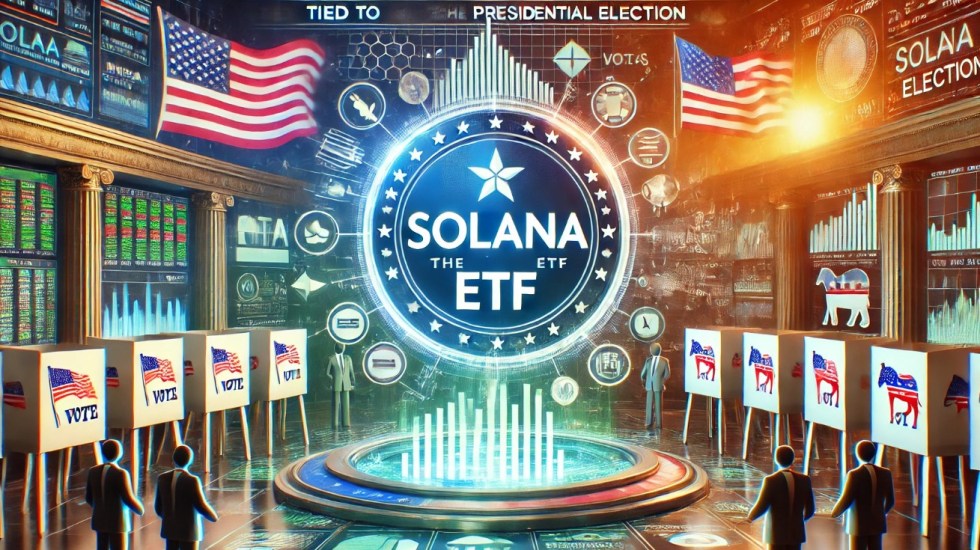Asset managers VanEck and 21Shares have officially submitted S-1 applications to the US Securities and Exchange Commission (SEC) for the first spot Solana ETF in a major development for the cryptocurrency industry.
This move comes as the Bitcoin ETF market has experienced significant success since its launch in January, with the Ethereum ETF market expected to commence trading in the upcoming week.
However, Matthew Sigel, VanEck’s Head of Digital Asset Research, has emphasized that the ultimate approval and likelihood of trading for the anticipated Solana ETF market heavily depend on the outcome of the upcoming US Presidential election.
This is due to notable differences in their approaches to crypto regulation and the potential change in SEC leadership, which plays a pivotal role in the approval process.
Sigel Calls For Fair Approval Process For Solana ETF
During a recent Bloomberg interview, Sigel highlighted the growing influence of crypto voters in the election and a shifting regulatory environment in Washington. He stated, “We’re already seeing a change in the regulatory environment at the elected official level. Multiple Democrats voting for pro-crypto legislation.”
Cryptocurrencies have become a prominent topic in the race for the White House, with the Biden administration adopting a different approach to digital asset regulation than former President Donald Trump, who expressed support for the industry.
Sigel further noted that the lack of a regulated futures market for Solana could impede the ETF’s approval. He attributed this to SEC Chairman Gary Gensler’s influence: “We think that is again Gensler Psyop. He has created that condition since taking power.”
Sigel expressed confidence that with the evolving regulatory landscape, the Solana ETFs could still be approved even if Biden wins the election. He emphasized that the outcome also depends on the SEC chair and urged the SEC to adopt a fair and timely approval process.
Addressing the regulatory environment, Sigel criticized the current situation, particularly concerning Solana. However, he emphasized that if Ethereum-based products are allowed to trade, it would cement Ethereum’s status as a commodity, and the same principle should apply to Solana.
Galaxy Digital Analysis
Alex Thorn, Head of Research at Galaxy Digital, analyzed on-the-spot Solana ETP filings by VanEck and 21Shares, similar to Sigel’s approach.
Thorn highlighted the significance of the recently passed FIT21 Act, which clarifies the regulatory boundaries between the SEC and the Commodity Futures Trading Commission (CFTC). This legislation could play a crucial role in future cryptocurrency regulation, clarifying whether digital assets should be treated as commodities or securities.
Thorn noted that such clarity could improve the chances of ETP approvals for digital currencies beyond Bitcoin and Ether, including Solana.
Overall, the path forward for Solana ETFs faces regulatory hurdles and uncertainties. VanEck’s history of early filing demonstrates their strategic approach, and they may be banking on the outcome of the US presidential election.
The fate of the Solana ETF will depend on the election result, potential SEC leadership changes, and ongoing developments in the regulatory landscape.
At the time of writing, Solana’s native token SOL is trading at $141, following the general market downtrend recorded on Wednesday, resulting in a price drop of 5% in the 24-hour time frame.
Featured image from DALL-E, chart from TradingView.com
